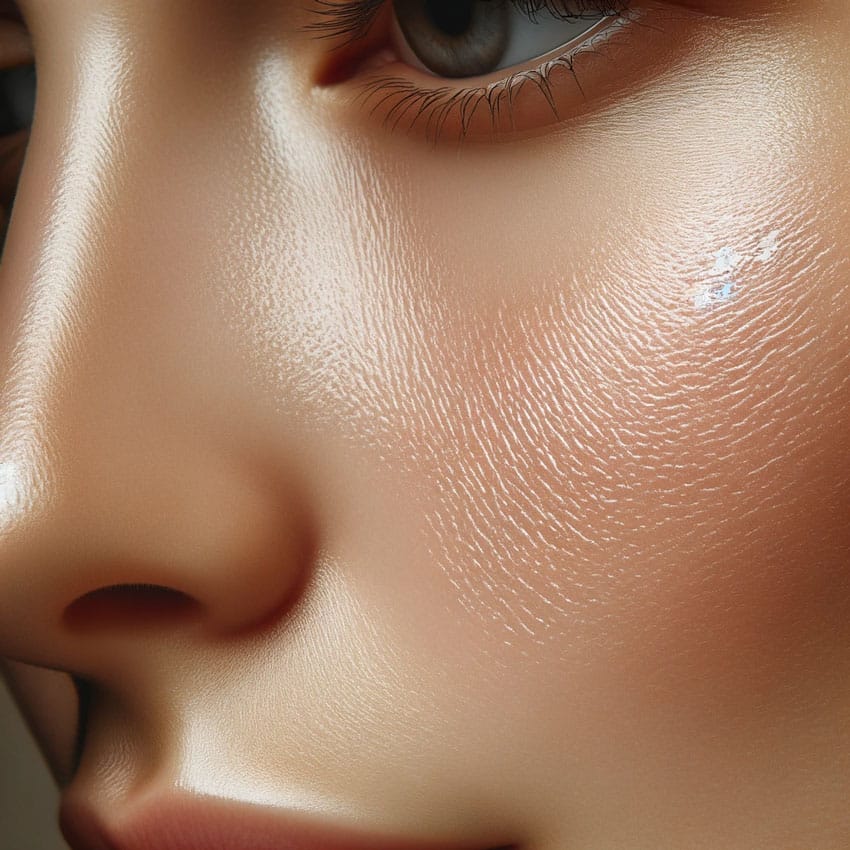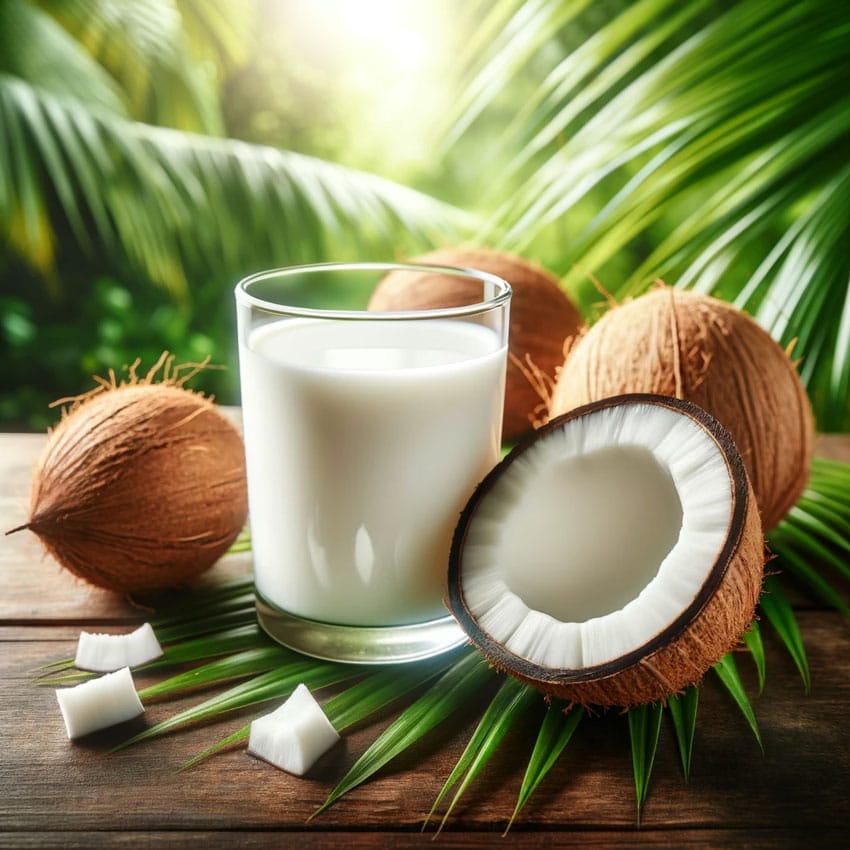For years, the impact of diet on acne has been a topic of much debate among dermatologists and nutritionists.
This piece focuses on coconut milk, a popular alternative to dairy, and its surprising effects on acne-prone skin.
Drawing from recent scientific studies and expert opinions, the article sheds light on how coconut milk, often perceived as a healthy and skin-friendly option, might exacerbate or alleviate acne symptoms.
Prepare to be surprised as we delve into the nutritional composition of coconut milk and its potential hormonal impacts, providing readers with an unexpected perspective on managing acne through diet.
Whether you’re an acne sufferer, a health enthusiast, or simply curious, this revelation about coconut milk is bound to provide valuable insights and provoke thought about the foods we consume and their effects on our skin.

Understanding Acne
Acne is a common skin condition that affects millions of people worldwide. It occurs when hair follicles become clogged with oil and dead skin cells, leading to the formation of pimples, blackheads, and whiteheads. Acne can occur on any part of the body, but it is most commonly found on the face, neck, chest, and back.
There are several factors that can contribute to the development of acne, including genetics, hormones, and diet.
Hormonal changes during puberty can cause an increase in oil production, leading to the formation of acne. Certain medications, such as steroids and birth control pills, can also cause acne as a side effect.
While there is no definitive answer as to whether coconut milk can cause acne, some studies suggest that it may contribute to the development of acne in some people.
Coconut milk is high in saturated fat, which can increase inflammation in the body and lead to the formation of acne. Additionally, coconut milk contains lauric acid, which has been shown to increase the production of sebum, a natural oil that can clog pores and lead to the formation of acne.
Coconut Milk Basics
Coconut milk is a popular dairy-free alternative to cow’s milk, which is made by blending coconut meat with water. It is a versatile ingredient that is used in many dishes, from curries to smoothies. Coconut milk is also known for its health benefits, including being high in vitamins C, E, and B vitamins.
When it comes to acne, coconut milk is a controversial ingredient. While some people swear by its skin-clearing properties, others claim that it can cause breakouts.
The truth is that there is no one-size-fits-all answer to this question, as everyone’s skin is different.
One thing to keep in mind is that coconut milk is high in saturated fat, which can increase sebum production in some people. Sebum is an oily substance that is produced by the skin’s sebaceous glands, and too much of it can lead to clogged pores and breakouts.
However, not everyone’s skin reacts to saturated fat in the same way, so it’s important to pay attention to how your skin responds to coconut milk.
If you are prone to acne, it may be worth limiting your intake of coconut milk or avoiding it altogether.
However, if you do decide to consume coconut milk, it’s important to choose a high-quality brand that is free from additives and preservatives.
You can also try using coconut milk topically as a natural moisturizer or face mask, as it may help to soothe and hydrate the skin.

Potential Link Between Coconut Milk and Acne
Coconut milk is a popular dairy alternative that is used in many recipes, including smoothies, curries, and soups. While coconut milk has many health benefits, some people have raised concerns about whether it can cause acne.
There is no direct evidence to suggest that coconut milk causes acne. However, some studies have found that coconut milk may contribute to acne indirectly.
For example, coconut milk is high in fat, which can increase sebum production in the skin. Sebum is an oily substance that can clog pores and lead to acne breakouts.
Additionally, coconut milk is high in lauric acid, which has been shown to have antibacterial properties. While this may seem like a good thing, it can actually disrupt the balance of bacteria on the skin. The skin has a delicate balance of good and bad bacteria, and disrupting this balance can lead to acne breakouts.
It is important to note that everyone’s skin is different, and what works for one person may not work for another.
Some people may be able to consume coconut milk without any issues, while others may find that it exacerbates their acne.
If you are concerned about the potential link between coconut milk and acne, it may be worth experimenting with eliminating it from your diet to see if it makes a difference.
Scientific Studies on Coconut Milk and Acne
Dietary Impact on Acne
Acne is a common skin condition that can be influenced by various factors, including diet. According to a systematic review and meta-analysis of observational studies, dairy products, particularly skim milk, have been linked to the development of acne in children, adolescents, and young adults. However, the impact of other types of milk, such as coconut milk, on acne is less clear.
Specific Research on Coconut Milk
There is limited research on the direct relationship between coconut milk and acne.
One study published in the Journal of Investigative Dermatology found that lauric acid, a fatty acid found in coconut oil and milk, has antimicrobial properties that can help reduce the growth of acne-causing bacteria. However, this study was conducted in vitro and did not involve human subjects.
Another study published in the Journal of Cosmetic Dermatology examined the effect of a topical cream containing coconut oil on acne-prone skin. The study found that the cream was effective in reducing the number of acne lesions and improving skin hydration. However, this study did not involve the consumption of coconut milk.

Alternative Causes of Acne
While consuming dairy products, including milk, can be a contributing factor to acne-prone skin, there are other factors that can cause acne as well. Here are some alternative causes of acne:
- Hormonal imbalances: Hormonal imbalances can cause acne in both males and females. Androgens, the male hormones present in both males and females, can stimulate the sebaceous glands to produce more oil, leading to acne.
- Stress: Stress can trigger the release of cortisol, a hormone that can stimulate the sebaceous glands to produce more oil, leading to acne.
- Medications: Certain medications, such as corticosteroids and some birth control pills, can cause acne as a side effect.
- Cosmetics: Some cosmetics, especially those that are oil-based, can clog pores and cause acne.
- Diet: While dairy products are a common culprit, other foods can trigger acne as well. Foods high in sugar and refined carbohydrates, such as white bread and pastries, can cause a spike in insulin levels, leading to acne.
Conclusion and Recommendations

Based on the available evidence, it is clear that diet can play a role in the development of acne.
While there is no direct evidence that coconut milk causes acne, it is important to note that it is high in saturated fat, which has been linked to acne in some studies.
It is recommended that individuals who are prone to acne avoid consuming excessive amounts of high-fat foods, including coconut milk.
Instead, they should focus on a well-balanced diet that includes plenty of fruits, vegetables, lean protein, and whole grains.
In addition, individuals who are prone to acne should avoid consuming dairy products, particularly skim milk, which has been shown to be associated with acne in some studies.
They should also avoid consuming foods that are high in sugar and refined carbohydrates, which can contribute to inflammation and acne.

